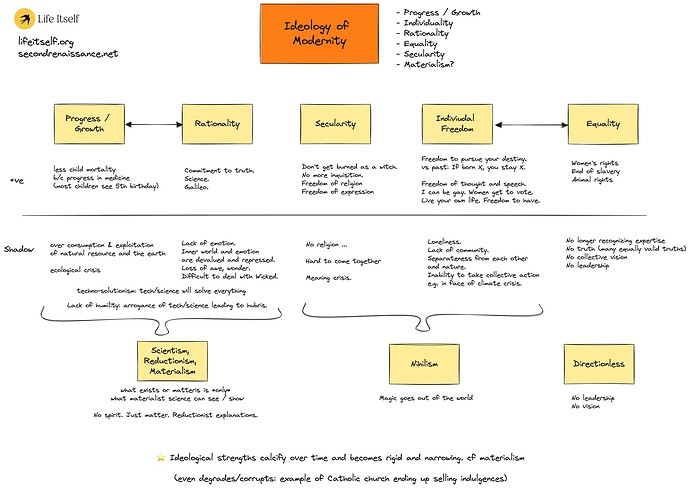Moving on
First, people don’t have that belief, as that belief is embedded in your ontology, not theirs. And, as I alluded to above, there are (or at least have been) many people who believe in “green growth”. I assume they mean that economic growth can happen without any increase in the use of energy or resources. I do not want to argue that case here, that is absolutely not the point. I am just pointing out that, misguided or not, some people hold that belief, and thus they believe that (economic) growth is sustainable. When you say “arrive at the conclusion” is seems like you are expecting people to follow reasoning like your reasoning. Again, here, that is often not the case.
This is where I can see the problem most clearly.
Very good to start with “I think”. And this allows in other people’s views. The rest of the sentence could well make sense in your way of thinking. And probably, the substance, if not the tone, makes sense to many people here. I expect most people here don’t buy into growth-based economics. But the “need to recognise exactly how insane” it “actually is”? The word “actually” suggests to me that you think you know the truth here, and that other people don’t recognise it. To me that is exactly the problem in the frame of maintaining civilised discourse in this forum.
You could say, instead, for example, “I see growth-based economics as insane”, and though that isn’t likely to make you many converts from adherents to growth, at least it is stating your opinion, and hinting at how it makes you feel. If I wanted to engage those with that viewpoint (not that they are here, though) I might say something more like “can someone explain to me how growth-based economics is compatible with the finite resources of our planet?” And, maybe, we would get some narrative that would serve as a starting point for first, understanding their mindset, and then opening it up for questioning.
It is my very clear experience that many people only become ready to listen when they feel their point of view has been heard. But then who listens first? I see it as the responsibility of us, if we aspire to being second renaissance folk, to be the ones who listen first.
@GeoffDann , I’m thinking it would be good if we could have a live conversation just between us before you reply… would that be possible? I hope so.
